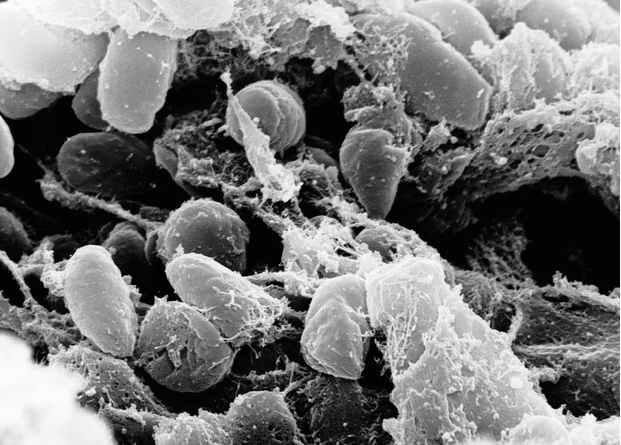A South Lake Tahoe resident has tested positive for the plague, El Dorado County health authorities announced this week.
Officials said the individual is recovering at home under medical supervision. Health authorities believe the person may have been bitten by an infected flea while camping in the South Lake Tahoe area, a popular recreational spot in the California mountains. Authorities are investigating the case.
“Plague is naturally present in many parts of California, including higher-elevation areas of El Dorado County,” said Kyle Fliflet, acting director of public health. “It’s important that individuals take precautions for themselves and their pets when outdoors, especially while walking, hiking, and/or camping in areas where wild rodents are present.”
How Plague Spreads
Plague is caused by the bacterium Yersinia pestis and is usually transmitted by flea bites from infected squirrels, chipmunks, and other wild rodents. Dogs and cats can also carry infected fleas into homes.
Local officials advised the public to avoid contact with wild rodents and keep pets away from rodent burrows. While human cases are extremely rare, they can be serious. Symptoms typically appear within two weeks of exposure and include fever, nausea, weakness, and swollen lymph nodes. If detected early, plague can be effectively treated with antibiotics.
Surveillance and Past Cases
The California Department of Public Health (CDPH) routinely monitors rodent populations for plague activity. From 2021–2024, surveillance in El Dorado County found 41 rodents exposed to the plague bacterium. So far in 2025, four rodents have tested positive, all within the Tahoe Basin.
This is not the region’s first human case. The last confirmed case in El Dorado County occurred in 2020, also linked to South Lake Tahoe. Prior cases were reported in 2015 in Yosemite National Park. All previous patients received treatment and recovered.
In 2021, the U.S. Forest Service temporarily closed popular Lake Tahoe sites after finding plague in chipmunks, completing eradication treatments to control the outbreak. Last year, Colorado health officials confirmed another human plague case.
The CDC estimates an average of seven human plague cases per year in the U.S., mostly in the western states.











Leave a Reply